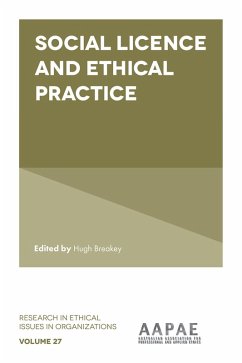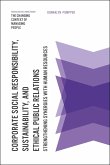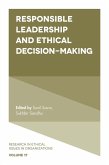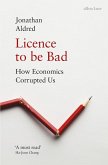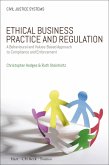What is the social licence to operate, and what are its ethical risks and promises? This collection explores these questions from a range of perspectives.Since its first key uses in the late 1990s in application to operational risks for extraction industries, the idea of the 'social licence to operate' has proliferated. It has since been applied to myriad industries-including tourism, paper milling, banking, and aquaculture-and even to the work of scientists and government agencies.Yet what is the ethical status of this concept? It is easy to assume that the social licence to operate is a welcome tool to improve the ethics of profit-seeking enterprises, forcing them to genuinely respond to community and stakeholder concerns, or face operational risk if they do not. No doubt the social licence sometimes-perhaps even often-works in this way. Yet there is ethical risk as well as promise in the social licence. For the concept can be weaponised by stakeholders, taking operational legitimacy out of the hands of settled law and democratic institutions, and wedding it to shifting community attitudes. Conversely, the concept can be used as a rhetorical shield by industry, who can insist they possess a social licence even when engaging in fraught ethical practice. These conflicting uses give rise to a separate worry: that the social licence is too ambiguous to function as anything but a meaningless buzzword, a distraction from high ethical standards and strong governance regimes. This Collection interrogates these challenges, exploring in a range of contexts whether and how the social licence's ethical promise can be secured, and its risks mitigated.
Dieser Download kann aus rechtlichen Gründen nur mit Rechnungsadresse in A, B, BG, CY, CZ, D, DK, EW, E, FIN, F, GR, HR, H, IRL, I, LT, L, LR, M, NL, PL, P, R, S, SLO, SK ausgeliefert werden.

